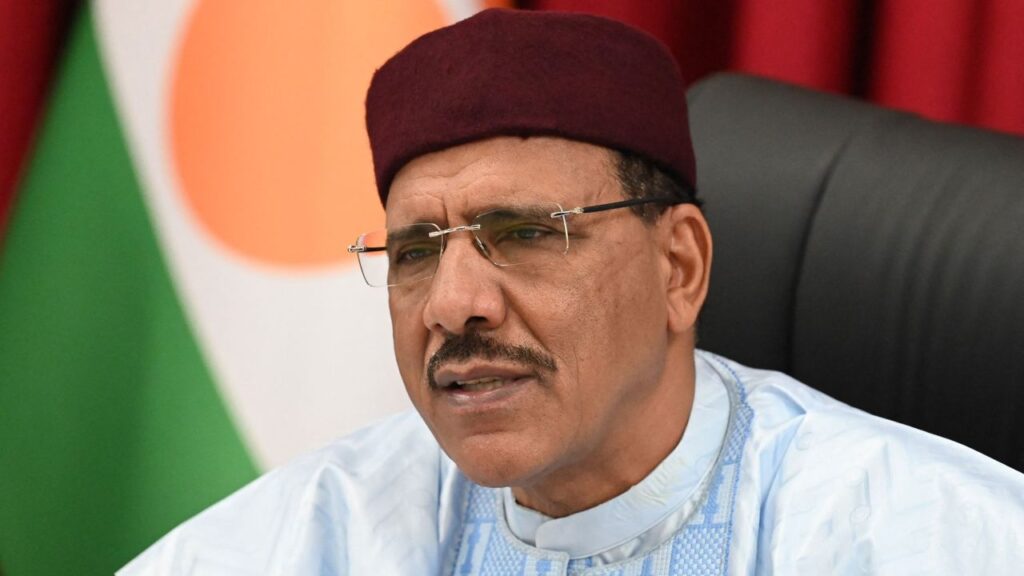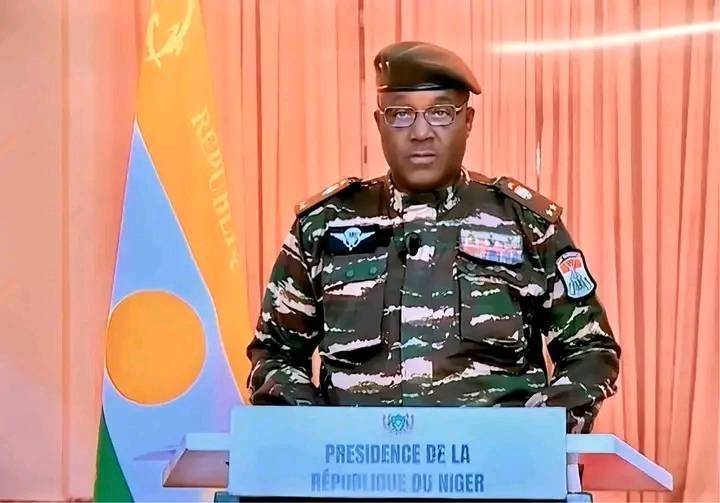The coup in Niger: Signals return of military interventions in Africa?

It’s barely a week now since a military coup took place in Niger. The elected government of Mohamed Bazoum was overthrown.
Bazoum was confirmed winner of a presidential run-off in February 2021 by the country’s Supreme Court. His inauguration into office on April 2 registered Niger’s first transfer of power from one democratically elected leader to another. Bazoum was the ruling party’s candidate, and he was taking over from Mahamadou Issoufou who stepped down after two five-year terms.
But like all the countries in Africa where the military overthrew democratically elected governments, the soldiers found reasons to execute the coup. The reasons have been consistent since the 60s, when the first coup happened in Ghana, undertaken by both the police and military.
The country Niger
Niger is one of West Africa’s landlocked countries. Has a population of around 25 million and is designated as one of the Least Developed Countries in the world. It is largely a Muslim country and not rich. The country’s largely subsistence farmer population, also does lots of trading. Even though the country is rich in uranium ore, which it exports, that wealth doesn’t reflect in the standard of living of the majority of the citizens. Most its citizens therefore live in poverty.
Niger is also the largest exporter of onions in Africa. The country produces some one million metric tonnes of onions every year.
The ‘Coup Capital of Africa’
West Africa has recorded more coups in the last 60 years, than any other region on the continent and could be conveniently described as the ‘Coup Capital of Africa’. Countries such as Ghana, Nigeria, Cote d’Ivoire, Liberia, Guinea, Togo, Burkina Faso, Mali, Guinea Bissau, Sierra Leone, and The Gambia have recorded military coups. Some of them brutal.
Then after a while, the coups went away, as Africa began a new attempt at experimenting with democracy by embracing a form of multi-partyism by electing leaders through the popular vote. Countries evolved new constitutions and looked forward to peaceful progressive periods of stable societies. But it appears that sense of optimism for stable democratic societies has waned. The justifications for coups haven’t disappeared. They seem to have become entrenched.

Reasons for military coups
Just as in the past, today, the reasons why the military overthrows elected governments include but are not limited to consistent abuse of office and power, blatant lawlessness by elected and appointed officials, abuses of human rights, financial embezzlements, corruption, cronyism, nepotism, and impunity. In some cases, the coups were as a result of meddling by former colonial masters or foreign forces with eyes on natural resources in some of these countries.
Elected officials in an inordinate pursuit of the exercise of power, close of all gaps for civic engagements; demonise opposition and public dissent and continue in acts, often irresponsible, that deepen the economic woes of their countries, thereby exacerbating poverty and creating many more poor people. While at it, their families, friends, cronies and assigns who are known not to be wealthy before their ascent to power, suddenly become rich overnight, owning properties in expensive neighbourhoods.
Just as in the past, today, the reasons why the military overthrows elected governments include but are not limited to consistent abuse of office and power, blatant lawlessness by elected and appointed officials, abuses of human rights, financial embezzlements, corruption, cronyism, nepotism, and impunity.
They destroy the military and law enforcement agencies, making them partisan by appointing known partisans into top positions, and often using them to silence dissenting voices. They also use them to brutalise the opposition.
In some cases, the judiciary is also recruited to work on the side of the Executive. Elected officials in that regard appoint weak and malleable judges into high positions in the judiciary and courts, including top courts. They weaponize the courts and Parliament – making institutions that should serve as checks on the Executive become tools of oppression and legitimization of lawlessness.
COVID-19 and restrictive laws
In recent times, elected governments have used the excuse of the COVID-19 pandemic to tighten their grip on power and to introduce restrictive laws. These laws give these governments sweeping powers. They allow governments to spend above limits. Even though many of these governments received several hundred million dollars in aid, they never accounted for them. The restrictive laws haven’t also been repealed, even after the COVID-19 had passed. Incompetence in managing economies have been excused with the Russia-Ukraine war.
While these governments claim a semblance of democracy as practiced by the West, they deny their citizens the space to participate. Protests are often met with high handedness. Journalists, civils society players and whistleblowers are targeted; sometimes they are corrupted, and those who refuse to be bought are silenced by any means necessary, including unlawful arrests and detentions, and in some extreme cases, they are murdered under circumstances that are never fully explained nor investigated.
Flawed democracy vrs military rule
It has been argued that a flawed democracy is better than military rule – which often comes with brutalities and its own form of lawlessness. Again, the soldiers who are trained to fight and kill, and not to run a country, having tasted political power and the largesse of public office, become even more corrupt, while they are not accountable to anyone. But when the coups succeed, the people feel a sense of relief and support the coup makers, who sooner than later show their true colours by suppressing the people.
While these governments claim a semblance of democracy as practiced by the West, they deny their citizens the space to participate. Protests are often met with high handedness.
However, some other argument says, when there is no room for dialogue or dissent in a democracy, a coup becomes the only way to hold elected officials to account.
Just as in the cases of the recent coups in Mali, Guinea and Burkina Faso, all in West Africa – the regional bloc, the Economic Community of West African States (ECOWAS) has threatened the military coupists in Niger with military force if they do not relinquish their hold on power and restore the elected president. They have rejected the calls and warned that they would resist any aggression and have been supported by the military adventurers in the other three countries, who have all said any military action to remove the soldiers from power in Niger would be considered an act of war against their countries and they would respond.
The defence ministers of the bloc met and gave a Sunday August 6 ultimatum to the coup leaders in Niger. But it’s yet to be seen if they would actually send in the military to forcefully remove the coup makers from power.
As the dark drama continues in Niger, Mali, Burkina Faso and Guinea, and the people show their support for the new military messiahs, is that a sign that military interventions are returning to Africa?
By Emmanuel K Dogbevi
Copyright ©2023 by NewsBridge Africa
All rights reserved. This article or any portion thereof may not be reproduced or used in any manner whatsoever without the express written permission of the publisher except for the use of brief quotations in reviews.
